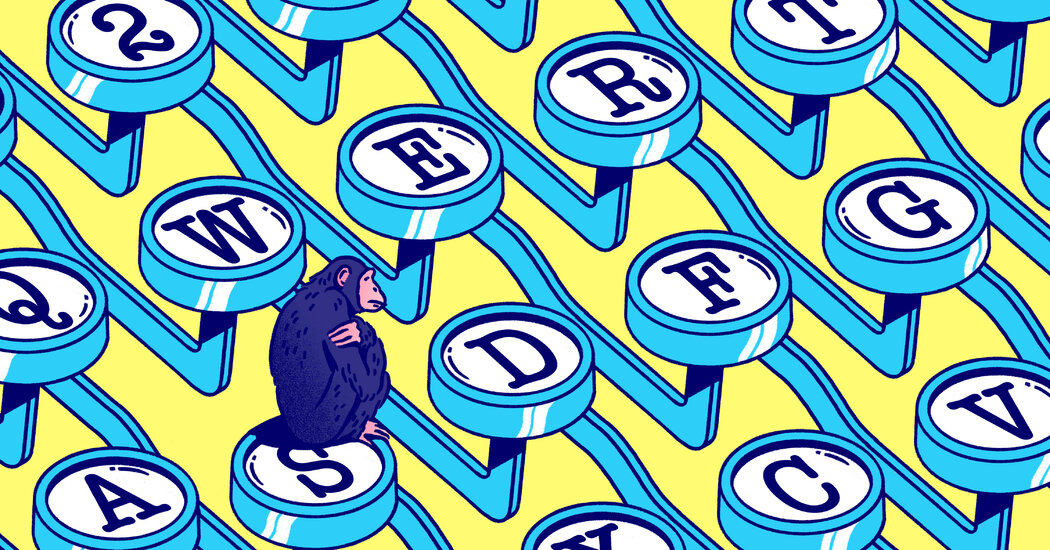Here is the text without the additional lines:
Science doesn’t usually tolerate frivolity, but the infinite monkey theorem enjoys an exception. The question it poses is thoroughly outlandish: Could an infinite number of monkeys, each given an infinite amount of time to peck away at a typewriter (stocked with an infinite supply of paper, presumably) eventually produce, by pure chance, the complete works of William Shakespeare?
The problem was first described in a 1913 paper by the French mathematician Émile Borel, a pioneer of probability theory. As modernity opened new scientific fronts, approaches to the theorem also evolved. Today, the problem pulls in computer science and astrophysics, among other disciplines.
In 1979, The New York Times reported on a Yale professor who, using a computer program to try to prove this “venerable hypothesis,” managed to produce “startlingly intelligible, if not quite Shakespearean” strings of text. In 2003, British scientists put a computer into a monkey cage at the Paignton Zoo. The outcome was “five pages of text, primarily filled with the letter S,” according to news reports. In 2011, Jesse Anderson, an American programmer, ran a computer simulation with much better results, albeit under conditions that — like the Yale professor’s — mitigated chance.
A new paper by Stephen Woodcock, a mathematician at the University of Technology Sydney, suggests that those efforts may have been for naught: It concludes that there is simply not enough time until the universe expires for a defined number of hypothetical primates to produce a faithful reproduction of “Curious George,” let alone “King Lear.” Don’t worry, scientists believe that we still have googol years — 10¹⁰⁰, or 1 followed by 100 zeros — until the lights go out. But when the end does come, the typing monkeys will have made no more progress than their counterparts at the Paignton Zoo, according to Dr. Woodcock.
“It’s not happening,” Dr. Woodcock said in an interview. The odds of a monkey typing out the first word of Hamlet’s famous “To be or not to be” soliloquy on a 30-key keyboard was 1 in 900, he said. Not bad, one could argue — but every new letter offers 29 fresh opportunities for error. The chances of a monkey spelling out “banana” are “approximately 1 in 22 billion,” Dr. Woodcock said.
The idea for the paper came to Dr. Woodcock during a lunchtime discussion with Jay Falletta, a water-usage researcher at the University of Technology Sydney. The two were working on a project about washing machines, which strain Australia’s extremely limited water resources. They were “a little bit bored” by the task, Dr. Woodcock acknowledged.
If resources for washing clothes are limited, why shouldn’t typing monkeys be similarly constrained? By neglecting to impose a time or monkey limit on the experiment, the infinite monkey theorem essentially contains its own cheat code. Dr. Woodcock, on the other hand, opted for a semblance of reality — or as much reality as a scenario featuring monkeys trying to write in iambic pentameter would allow — in order to say something about the interplay of order and chaos in the real world.
Even if the life span of the universe were extended billions of times, the monkeys would still not accomplish the task, the researchers concluded. Their paper calls the infinite monkey theorem “misleading” in its fundamental assumptions. It is a fitting conclusion, perhaps, for a moment when human ingenuity seems to be crashing hard against natural constraints.
Source link




